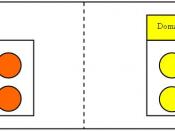YOU ARE FIRED! 5 years of employment went by very fast. I it was almost 4:45 PM on a Monday afternoon, no big problems, no rain at all, a beautiful day indeed. The reports from accounting were in. Sales went up 12%, operating expenses were in budget, except for maintenance, inventories were up $ 250,000, however, it was a yearly pattern. The business needed this inventory level to support the increasing sales the company was having. The IT audit was underway and everything seems manageable after the findings. Employees were preparing to go home and see their love ones. Suddenly, the phone rang.... My boss wants a rush meeting at his office located 30 minutes away... I drove over, enter his office and then... he surprised me! Rodolfo, you are dismissed! The reason: Speculative purchasing. You know the procedure; pick up your belongings from the office and give me your key, cellular phone and phone card.
Stricken, hurt, and in disbelief I drove back to clean my office. During the seemly endless drive, I scrutinized every minute of my 5 years employment, trying to find a "why" to my dismissal.
Common sense plays an important role in the previous business situation. Regular norms and rules that seem logical for one person are not so simple or understandable for others. For example, when a supplier has extended lead times, the norm says, "do an adjustment in purchasing, manufacturing and contracting in order to balance deliveries". At this point in time, inventories will be low. A lower level on demand the norm displays "do a procurement adjustment". This lower level of demand represents high inventories on hand at the sales crash moment. The common sense tells how to use the norms, what adjustments needs to be worked out, such as asking customer forecasting (purchasing plans) and using a freeze windows to have buffers along the supply chain. Sometimes rules do not agree with common sense. The sales of the company grew 150% and filled orders at a 97% level, under what we called, self-adjusting inventory, it is a great accomplishment. In this case the inventory always moved according to the market (forecast and purchasing plan from customers) and not according to the orders placed. At this point the inventories grew 100% with a service level of 98%.
The business was making money, under budget and with profit. However, company officers could not understand my plan. They consider buying against a plan and not against orders is not a correct business practice, therefore was speculative, for a purchasing plan has and accuracy less than 35% and can not be used to purchase. If the company were to purchase against the orders, sales would be less, for orders can not be filled and no grow could be accomplish.
Common sense in business management is an adaptable, continuing process, which depends on a person's ideas and creativity in order to develop and implement an innovative plan. This plan provides the written guide to accomplish success. However, the written plan is just the vehicle of communication, and reviewing tactics and strategies, the person must understand that the future is not really going to be precisely what the plan states. Many changes happen between today and tomorrow, and tomorrow is not predictable, for events take place unexpectedly, or do not occur when expected.





